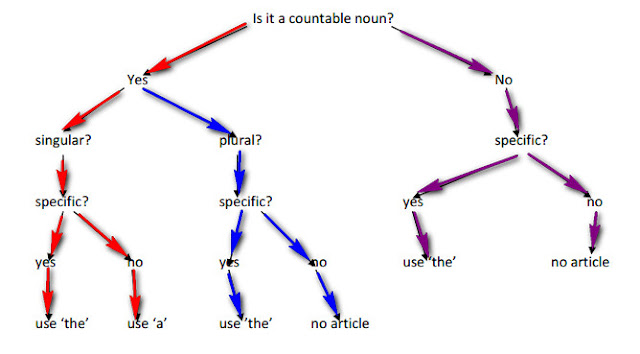Second conditional, definition&rules
THE SECOND CONDITIONAL
We use the second conditional to talk about an imaginary situation (impossible). Ex: if someone asked me to hold a tarantula, I wouldn't do it. (I don't think someone will ask me to do this).
Second conditional sentences talk about the present or the future. They often talk about the opposite of what is true or real. Ex: if I had enough money, I would buy a car. (I haven't got enough money now).
*2nd conditional is a structure used for talking about unreal situations in the present or in
the future. The second conditional is used to talk about things which are unreal (not true or not
possible) in the present or the future -- things which don't or won't happen.
the future. The second conditional is used to talk about things which are unreal (not true or not
possible) in the present or the future -- things which don't or won't happen.
Form:
If+subject+Pastsimple, subject+would/wouldn't+infinitive.
IF clause
|
Main clause
|
If+subject+simple past
|
Subject+would/wouldn't+infinitive
|
If we were in London today
|
we would be able to go to the concert in Hyde Park.
|
Note: the if clause can be first or second in the sentence. We only use a comma when the if clause is first:
If I had enough time, I would play football.
We don't use would in the if clause.
Note that after I / he/ she /it we often use the subjunctive form 'were' and not 'was'. (Some people think that 'were' is the only 'correct' form but other people think 'was' is equally ‘correct’.)
- If she were happy in her job, she wouldn't be looking for another one.


